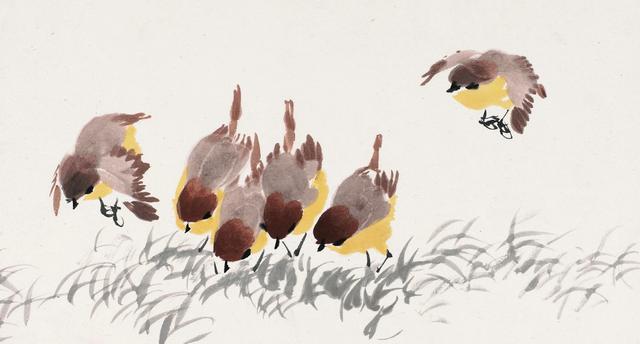和外国人聊天的正确方式(和外国人聊天的5种套路)
God, I love your lips, Angelina.,我来为大家科普一下关于和外国人聊天的正确方式?下面希望有你要的答案,我们一起来看看吧!

和外国人聊天的正确方式
God, I love your lips, Angelina.
天哪,我爱死你的嘴唇了Angelina。
Hi. James from engVid.
嗨,我是英格威的James。
I was just thinking to myself: Well, I know it's very difficult to practice English because you don't get a lot of practice with English speakers, but if there were a way I could teach you how to get past " Hello" to make the conversation grow and perhaps have the other person come back and talk to you, that would be of great value.
我刚刚在想:嗯,我知道你们练习口语非常难,因为你们没有多少机会能跟英语为母语的人对话,但是如果我可以教你们一个方法让你说完“你好”之后,继续能跟人聊上天,而且说不定跟你聊过的人还会回来找你,那就太有意义了。
So this lesson is about how to get past " Hello" and make a beautiful conversation flow. All right?
所以今天这节课就是教你们如何在跟人打完招呼后展开一段有趣的对话。怎么样?
I'm going to use Angelina to help me later on when I do an example, but for now I will tell you more. See? It's like: " Tell me more. Hmm. I'm interested." And so am I.
待会儿我做示范时会用到Angelina,现在呢我先详细地跟你们讲讲。怎样?你现在肯定在说:快讲快讲,我开始感兴趣了。我也想要赶快讲给你们听。
All right, so let's go to the board, shall we? I'm going to give you five conversation openers.
好了,我们来看一下白板吧,好吗?我要教给你们五种跟别人展开对话的方式。
You said: " Hello" , where do you go? Personally I hate this because I teach and I hear people say: " Hello. My name is James. I am from Japan, Tokyo." The conversation is essentially dead. Dunh-dunh-dunh-dunh. Don't know if that's the wedding theme or the theme from Star Wars. Doesn't matter. You understand. It's killed. Nobody cares.
你说完了:“你好”,之后会说什么?我个人很讨厌这种打招呼方式,因为我教英语的时候会听到学生说:“你好 我的名字叫James 我来自日本东京”。你其实已经把天聊死了。当~当当当~我唱的是婚礼进行曲还是星球大战主题曲?这不重要,你懂的。对话失败了。没人在意了。
You've said everything that they need to know and then they're done. So why don't we do something that actually gets them to open up and want to tell you information? Okay?
你一张口就把能说的全说了,他们也就没什么好跟你聊的了。为什么我们不能聊一些能让对方打开话匣子的内容,让他们产生跟你交流的欲望呢?好吗?
So the first one we're going to do is this one. I like this one. It's so easy, it's so true.
第一条就是这个。我喜欢这种。很简单,很真实。
Look for something that someone is wearing or has that you actually like. You're not going to steal it, so don't think about that. What I mean is you like. You like the t-shirt, you like the jeans, the ear rings or something, you're like: " Cool" , because that will be sincere. " Sincere" means that you really mean it and the person can feel that from you, so they'll want to share with you because you're being honest with them. All right?
观察别人身上有没有你喜欢的穿的或戴的东西。不是叫你去偷,别想歪。我指的是你真的喜欢的。T恤衫,牛仔裤,耳环或者是其他什么的,那种你看到就会觉得"哇"的东西,因为这样才显得你真诚。“真诚”意味着你是发自内心地觉得他的东西好看,对方也能感觉到你是真心的,那么他们就会想跟你分享,因为你很真诚。懂吗?
So we look here, number one, walk up and say. . . So it's like: " Hello. Love your . . . (jacket, t-shirt). That is so cool." Yeah? " Where did you get them? " or " Where did you get it? " Notice I didn't say: " Where did you buy it? " because some of the coolest things someone's going to be wearing, won't be from this country.
所以我们来看,首先,走上前对他(她)说……“你好,我好喜欢你的……(外套、T恤等等),太漂亮了”。好吗?“这是哪里来的?”注意这里我没说”这是哪里买来的?”因为人家穿戴的这些既美又超时髦的东西有些,可能不是国内买的。
It might be: " Hey. I was in India and I picked up these beads. Yeah, it was really cool. I was outside this ashram and. . ."
他们可能会说 “噢,这串珠子我是从印度带回来的”。它的确很漂亮。“我当时经过一座寺庙 然后……”
And now you've got a conversation you didn't even know.
在你没意识到的时候对话就已经开始了。
Or it might be: " Oh, I was downtown in the hippie section, you know, and it was really cool, there was all this art."
他们还可能会说“噢,我当时在市里的嬉皮士街区,那个地方太棒了,那边都是这种风格的东西。”
You've started a conversation.
你们就这样开始聊起来了。
If you say: -" . . . buy them? "
如果你问“哪儿买的啊?”
-" At the gap."
—“在GAP店里”。
Finished.
对话结束。
So: " Hey. Where did you get them? " Let them say " buy" . Don't bring that up. Okay?
所以要说 “哎,这是哪儿来的呀?”让对方告诉你是哪儿买的,你不要问。明白吗?
Follow up that with right away. . . As soon as you say: " Where did you buy them. . . ? " It's true. . . It might not be true right now, but it could be true, you say: " Because I really have to get a cool present" , or: " . . . an interesting gift for my nephew/my brother/my sister/my friend." Right? Or girlfriend, whatever, or your wife.
然后紧跟着你就……你一问完哪里买的 就说……这句话是真的……可能是真的也可能是你现编的,你说:“我想买一个很棒的礼物”,或者:或者说“给我侄子/兄弟/姐妹/朋友买个好玩的东西”也可以是女朋友,或者太太,都可以。
By saying that you're saying, well, one thing, you have other friends. But number two, you're giving them: " Cool" . You're saying whatever they're wearing is interesting, cool, different enough that it stopped you to talk to them.
说完这句话你其实就传达了两层含义,第一,你是一个有朋友的人。第二,你在对他们说“你很酷”你说是因为他们身上穿戴的东西太好玩了,太酷了,太不同寻常了,所以你走上前跟他们谈话。
By example or by extension, that means added on you're saying: " You're kind of cool, too, because you're wearing it, and I think it's cool, so it's got to be cool and only a cool person would buy it." Right?
通过多说那一句话 你其实补充了一个言外之意:“会穿/戴这种东西的人一定也很酷”“我觉得这件东西很棒 所以买它的人一定也很有品位“。对吧?
This is why it works, you've given them two compliments. Who doesn't want to be complimented? First you're saying I'm wearing something cool, then you're saying: " I need to get something cool, and clearly what you have is cool."
这句话的要点在于你夸了对方两次。谁不想被人夸呢?你先是夸了我的东西好看 然后又说:“我想买一个很棒的东西 你这个就很好”。
I'm probably going to talk to you and go: " Well, you know, thanks for saying that. I liked it because. . ." And conversation started, and now you have an opportunity to maybe later on talk more, and that's how you get your practice.
我听完了可能会对你说 “噢,谢谢夸奖”。“我喜欢这个东西是因为……”。然后对话就展开了?,你可能还有机会约人家改次再聊,也就此获得了一个跟人练习英语的机会。
Number two, how about this one? " Wow, you are. . . tall" . or: " You have really bright eyes" , or something that has to do with the physical body.
第二种,举个例子怎么样?“哇 你好……高啊”。或者是“你的眼睛……好亮啊”,又或者是其他跟相貌有关的方面。
The first one was about things. Physical. Now we want to talk about physical. And you followed that up with: " What do you do? "
刚刚第一种方法的关键词是物品。第二种方法的就是外貌这次我们夸夸别人的外貌。然后紧跟着就问一句“怎么做到的?”
Huh?
啥?
Example, you see someone, you go: " Wow, you have amazing skin. What do you do to make it so clear? " Okay? Hmm. Or: " Wow, you're tall. What do you do? Do you play sports or anything like that? " Okay?
来举个例子 你对某人说:“哇 你皮肤好赞啊 你是怎么保养得这么清透的?”懂了吗?嗯。或者说“哇 你好高啊 你是怎么长这么高的?”“你平常有做什么运动吗?”懂了吗?
You follow it up. This is the follow up, as I said: " What do you do? "
要像这样紧接着问第二句。这里写的就是第二句我刚刚说的 “你是怎么做到的?”
But why does this work?
为什么这句话有效呢?
Now, notice this is green and I have green up here. You probably noticed it but didn't understand why I skipped it. I live in North America and basically I could say this is true for a lot of Western society. We prefer you give compliments on positive things, Being tall is a positive thing in our society.
注意一下这里我做了绿色标记,上面这个词我也是用绿笔写的。你可能注意到了但是不知道为什么我跳过了这个词。我是北美人,但是我可以代表大多数西方人告诉你们一个事实。我们喜欢听到别人称赞我们的优点,在我们国家身材高大就是一个优点。
Alex, if you've ever seen him, he's a giant, but I wouldn't call him a giant because that's not necessarily positive. But saying he's very tall, he'll be: " Yes, I am. I'm very tall."
如果你们见过Alex 就知道他高得像个巨人,但是我从来不会这么对他说。因为“巨人”这个词并不怎么褒义。但如果你说他很高,他就会:“对 没错 我的确是很高”。
Saying, like: " You're this big huge thing" , not good. So don't talk about things that might be negative. If someone is very big in weight, but not muscle, fat, you can't say that. They won't like it. Even if you think it's delicious, they won't like it.
如果说“你很大只” 这样也不大好。不能提及可能含贬义的东西。如果某人体积大,又没什么肌肉,很胖,你跟他聊天就要避开这一点。因为他们会不高兴的。就算你觉得这样说很有趣也不行,他们不会喜欢听的。
If you think they're too short, like: " Wow, are you ever small. You're so small I could. . ." Not a compliment. Okay? So tall is good, bright eyes, good skin, lovely teeth, great hair. You know? All these things.
如果你觉得他们很矮,说“哇 你好小只啊”“这么小 我都能把你……”,这可不是赞美。学会了吗?你可以夸对方高、眼睛很亮、皮肤好、牙齿整齐、头发好看。懂吗?要夸这些方面。
Now, this is physical. Because this is a compliment about someone's style, number one;
以上就是跟外貌相关的谈话。因为……刚刚说的第一条是称赞对方的风格;
number two is a compliment about them personally.
那么第二条呢,你称赞了这个人本身。
Now, the reason we don't say negative is you can't do things. . .
为什么不能提到他们的缺点呢,因为我们不能……
If you've got a negative feature in your life, like you're not tall or you're fat, you maybe can't do anything about it, so that's not nice to talk about.
比如你有个缺点,例如说不够高,或者胖,你可能没办法改变这个缺点,有人在你面前提起的话这就不大友好了。
But positive stuff-I know, your parents make you tall, but people don't think of that-it's, always good. Or good skin, right? Or nice hair style. Okay?
但是优点呢,身材高的优点虽然是你父母给的,但是大家一般不会首先想到那个——身材高,总是一个优点。或者说好的皮肤,对吧?还有漂亮的发型。懂了吗?
Why it works, because you've complimented the person which is good. You've said: " Look, physically, there's something beautiful about you." But you've also, by saying: " What do you do? " If you talk about their skin, you're saying: " You have a talent" or: " You have a skill" . Or if they're tall, you say: " You've got to be playing sports or something."
这句话为什么有效呢,因为你称赞了对方,而这是个好事。你等于是在说:“瞧,说到外表,你有些地方真的很美”。接着你又加了一句“你怎么做到的?”如果你称赞他的皮肤,这句话的意思就是:“你有保养皮肤的天赋”或者是“你保养皮肤很有一套”。如果你夸的是对方的身高,这句话意思就是“你肯定有在做运动什么的”。
So you're actually saying: " You have actually worked on something." So you're not just saying: " You're beautiful" , you're saying: " You're beautiful and you've worked on something." That is good. Okay?
所以你实际上是在夸“你真的有在努力做事情啊”。不只是在说“你长得好看” 而是在说:“你不仅长得好看而且还很努力”。这就很棒了。懂了吗?
,免责声明:本文仅代表文章作者的个人观点,与本站无关。其原创性、真实性以及文中陈述文字和内容未经本站证实,对本文以及其中全部或者部分内容文字的真实性、完整性和原创性本站不作任何保证或承诺,请读者仅作参考,并自行核实相关内容。文章投诉邮箱:anhduc.ph@yahoo.com






